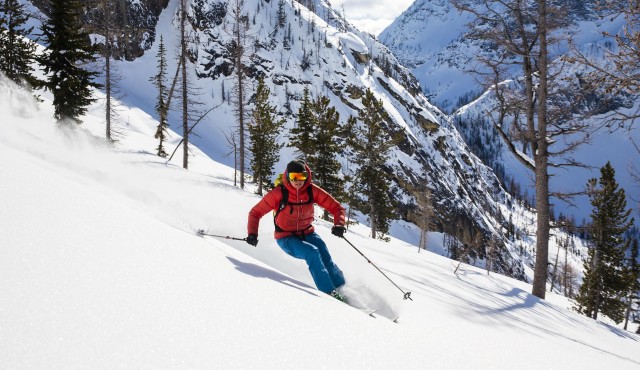Documentaries on nature? A big successful genre. On this website? Not so much. There is no antagonism behind it, with a 5-year-old at home, believe me, I have become familiar with and accepting of the many flavors the form presents. It is, simply, that storytelling tends to be a lower priority for these works, as the most important goal is to give information. Didacticism in most media tends to put me off, so these two aspects, paired, put nature docs at a disadvantage in our programming.
I lead with this disclaimer to foreground the exceptional nature of Finding Gulo—it certainly is an “issue” doc, seeking to bring awareness to the plight of the North American Wolverine which has been driven to near extinction specifically, and, more generally, to the power of citizen-led science and grassroots stewardship. Yet, the construction of the film across 27 minutes is simply impeccable. In discussing the film as a submission with the team I proffered the opinion that it was “hard for me to think how you could improve this film,” and that it was “perfectly modulated at about every point.”
Co-directors Colin Arisman and Tyler Wilkinson-Ray really have made, to my mind, something of a marvel, a piece that is worthy of study by documentary filmmakers outside of the nature genre. I have often borrowed a quote from the documentarian, Lucy Walker, that in questions of length and pacing, films should be “1 minute short of boring”. Finding Gulo abides by this maxim, perfectly sensing moments of impending boredom and shifting gears – largely thanks to the masterful edit of Chris Cresci. From montages of the activist team’s quixotic quest to lay photographic traps for the wolverines, we jump to cute action footage of the creatures themselves, then to archival video explaining how the species got to the dire point. Hold up, let’s toss in some gorgeous ski footage just in case your attention was flagging at all. Buoyed throughout by its charismatic (human) lead, Steph Williams, and her collaborator, David Moskowitz, the documentary shifts gears to idly discuss her love life two-thirds into the film and I was completely on board!
None of this is revelatory in conception or technique, but the execution is simply so good. It helps that the tone of the film keeps it light and breezy too. Taking their lead from Steph and David, the filmmakers note, “Our goal was to make a film that tackled a serious issue without it being overly serious. We wanted it to be fun to watch and humorous — mirroring the way that characters Steph and Dave work together.”
Originally the co-directors were looking to collaborate on a ski film, however, the duo did not want to create, in their words, a “ski porn” film. Steph’s story presented an opportunity to craft something deeper, with Arisman sharing with us that “Steph’s connection to wild animals and the complex history, ecology and politics that surround wolverines provided a narrative that allowed us to go beyond just a “stoke” film.” A grant from the outdoor lifestyle brand, Patagonia, supported that inclination. Shot over the course of 3 weeks, the film had a successful run at outdoor film festivals including the prestigious Banff Mountain Film Festival before coming online this past month and garnering a Vimeo Staff Pick. Arisman shares with us that his next film is currently in post and will be premiering in early 2023. It is titled Range Rider and will be a 30-minute doc about the conflict between wolves and ranching in Washington State.

 Jason Sondhi
Jason Sondhi
